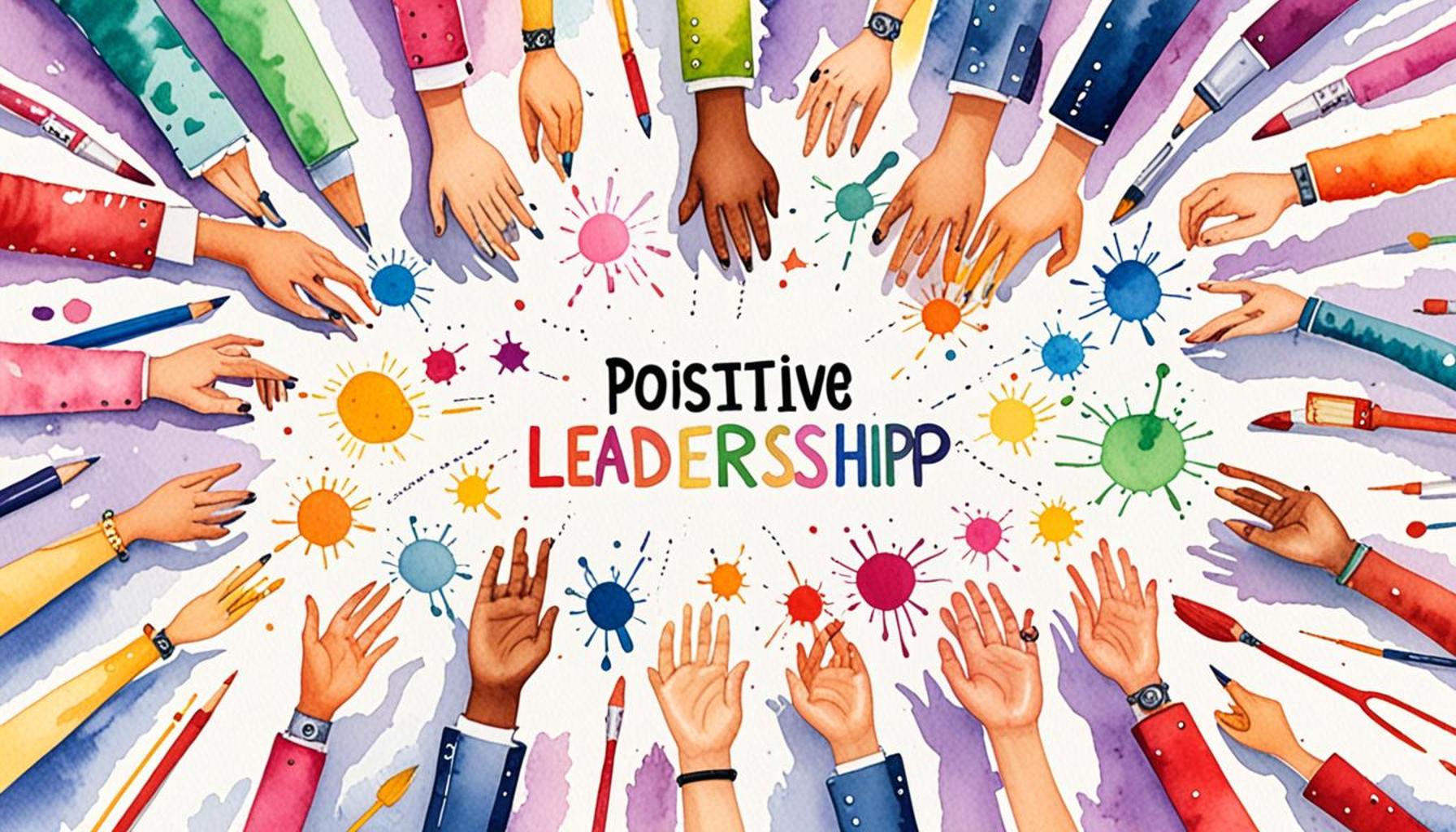Daily Positive Affirmations: A Practical Guide to Developing Resilience

Embracing Resilience: The Power of Daily Affirmations
In a world filled with challenges, building resilience is essential for navigating life’s ups and downs. Daily positive affirmations can serve as a powerful tool in fostering this resilience. By actively engaging in positive self-talk, individuals can reshape their mindset and improve their mental strength. This practice helps to create a more optimistic outlook on life, which can significantly impact how one tackles obstacles.
Consider the following key benefits of daily affirmations:
- Boosts self-esteem: Regularly affirming one’s worth can lead to a more positive self-image. For instance, phrases such as “I am capable and strong” can combat feelings of inadequacy that often arise in high-pressure environments, common in Nigerian workplaces.
- Reduces stress: Positive statements can lower anxiety and promote a sense of calm. In moments of high tension, such as during an economic downturn, repeating affirmations like “I can handle any challenge that comes my way” can help individuals manage their fears effectively.
- Enhances focus: Affirmations can help individuals concentrate on their goals and aspirations. For many, writing down specific dreams such as “I will succeed in my education” can create a clearer pathway towards achieving these ambitions.
The context in Nigeria, where societal pressures and economic challenges are prevalent, emphasizes the importance of cultivating a resilient mindset. The hustle culture in cities like Lagos, coupled with the struggles many face regarding job security and financial stability, makes it critical to develop coping strategies. Daily affirmations can empower individuals to overcome obstacles and persevere through adversity.
Implementing daily affirmations into your routine effectively can pave the way toward personal growth. Start by selecting a few affirmations that resonate deeply with you. They could range from personal empowerment, such as “I am worthy of love and respect,” to goal-oriented statements like “I am on the path to financial stability.” Reciting these affirmations each morning, perhaps in front of a mirror, can set a positive tone for the day ahead.
Moreover, understanding the science behind why affirmations work can bolster your commitment to this practice. Research in psychology suggests that affirmations can activate the brain’s reward centers, which can foster positive emotions and improved self-concept. By engaging in this practice, individuals can effectively overwrite negative thought patterns that may have been formed over years of societal expectations or personal setbacks.
This article aims to further explore the implementation of daily positive affirmations. Here, you will discover practical tips for integrating affirmations into your life, along with illustrative examples that resonate within the Nigerian context. Join us in this journey toward resilience, unlocking the potential that lies within each of us.
RECOMMENDED: Check out this similar article
Integrating Positive Affirmations into Your Daily Routine
Implementing daily affirmations effectively requires dedication and a structured approach. The beauty of this practice lies in its simplicity, yet its potential for profound impact on your mental wellbeing is monumental. When considering how to integrate daily positive affirmations into your life, consistency and personalization are key. Start by compiling a list of affirmations that reflect your aspirations and challenges. Below are steps to help you formulate a strong affirmation practice:
- Identify Your Needs: Reflect on areas in your life that require improvement. Are you struggling with self-doubt, financial insecurity, or work-related stress? Recognizing these challenges enables you to craft affirmations that address them directly. For example, in a competitive job market, affirmations such as “I am driven and will attain the position I desire” might resonate deeply.
- Make Them Specific: Vague affirmations can often feel hollow. Instead, create clear and specific statements that embody your goals. Phrases like “I manage my time effectively to achieve my targets” allow for straightforward tracking of personal improvements.
- Use the Present Tense: Speaking in the present tense can create a sense of immediacy. Statements like “I am embracing new opportunities” signal to yourself that these changes are already in motion.
- Create a Routine: To embed these affirmations into your daily existence, establish a routine. Consider incorporating them into your morning rituals, where you recite your affirmations while getting ready or during your commute. Doing so can set a positive atmosphere for the day ahead.
Moreover, embracing the cultural context of Nigeria enriches the affirmation experience. In a landscape where communal support often fuels personal ambitions, sharing affirmations with family or friends can create a sense of accountability. This practice can be particularly empowering, considering the challenges many face, from economic instability to societal expectations. Affirmations like “I am strong enough to overcome life’s struggles” can be shared in group settings, fostering encouragement within your community.
Additionally, implementing technology can support your affirmation journey. Utilize apps that allow for daily reminders to encourage mindfulness about your affirmations. Set daily notifications with your chosen phrases, or better yet, create a vision board online where you can visually engage with your aspirations. In this way, you create a lasting imprint of positivity that can withstand the daily stresses of life.
As you embark on this enriching journey towards resilience, it is essential to track your progress. Keeping a journal dedicated to your affirmations can offer insight into how they affect your life. Documenting your emotional responses can reveal shifts in mindset that affirmations introduce. Over time, you will likely notice an increased ability to manage stress and a more profound sense of emotional fortitude.
In summary, daily positive affirmations hold immense potential in developing resilience when approached thoughtfully. By personalizing your affirmations and integrating them into your routine, you can cultivate a powerful tool for navigating life’s uncertainties. Stay tuned as we explore potent examples and strategies that resonate with the daily experiences of individuals in Nigeria.
Daily Positive Affirmations: Building a Stronger You
In the journey of self-improvement, the integration of daily positive affirmations serves as a critical building block for developing resilience. By consistently engaging in self-affirmation, individuals can reshape their thoughts, influencing their emotions and actions positively. The essence of affirmations lies not just in the repetition of phrases, but in the profound psychological effects they can induce. When repeated regularly, positive affirmations can help combat negative thoughts and instill a sense of purpose and strength.
Research indicates that using positive affirmations daily can help reduce stress and anxiety, enhancing one’s ability to cope with life’s challenges. These statements act as a powerful tool, serving to remind individuals of their strength, capabilities, and potential. It is through this practice that one can cultivate a mindset oriented towards growth and resilience.
For those keen on incorporating this practice into their daily routine, creating personalized affirmations that resonate on a deeper level is crucial. Tailoring affirmations to align with personal goals or overcoming specific obstacles can lead to a more impactful experience. This personalization enhances their effectiveness and fosters a genuine connection with the sentiments expressed.
In addition to fostering personal strength, positive affirmations can significantly impact interpersonal relationships. When individuals operate from a place of confidence and positivity, they often create a ripple effect, influencing those around them. This aspect is particularly beneficial in stressful environments, where a collective mindset oriented towards resilience can lead to improved group dynamics and productivity.
Maintaining consistency is key in the practice of affirmations. Establishing a daily routine, whether it is in the morning to set a positive tone for the day or in the evening to cultivate reflection and gratitude, can exponentially increase the benefits experienced. Engaging with a community that shares this practice can provide additional motivation and support, further enhancing the journey towards resilience.
| Category | Benefits |
|---|---|
| Psychological Resilience | Enhances coping abilities and maintains mental health. |
| Self-Confidence | Promotes a stronger belief in personal capabilities and potential. |
The implications of engaging with daily positive affirmations are vast, extending beyond the individual to impact social interactions significantly. As this practice is embraced, it becomes increasingly accessible for anyone to harness the power of their words to shape a resilient future.
CHECK OUT: Click here to explore more
The Science Behind Positive Affirmations
While the practice of daily positive affirmations has roots in various cultural traditions and personal development programs, it is also underpinned by substantial psychological research. Understanding the mechanisms that make affirmations effective can deepen your commitment to this resilient strategy. Psychologists suggest that affirmations can alter one’s neural pathways and promote a shift in cognitive behavior patterns, making the application of affirmations not just a feel-good exercise but a scientifically-supported method for emotional reinforcement.
One prominent theory in psychology is self-affirmation theory, which posits that when individuals focus on their values and strengths, they are better equipped to cope with stress. This theory highlights how reminding ourselves of our worth can bolster our self-esteem, particularly when faced with adverse situations. For instance, Nigerian professionals pursuing challenging careers may incorporate affirmations such as “I possess the skills necessary to thrive” as a reminder of their competence and capability in navigating work-related stressors.
- Research Findings: Studies have demonstrated that individuals who frequently engage in affirmations experience greater resilience, lower levels of anxiety, and improved problem-solving abilities. For example, a study published in the journal “Psychological Science” found that students who practiced self-affirmation techniques before examinations performed better under stress than those who did not. This indicates that incorporating affirmations effectively influences both performance and overall mental health.
- Cultivating Resilience: The benefits of daily affirmations become particularly pronounced in contexts requiring fortitude, such as overcoming personal or financial hardships. In Nigeria, where many face economic and social challenges, daily affirmations like “I am capable of creating opportunities for myself” can serve as a powerful motivator to transcend difficult circumstances.
Moreover, the incorporation of cultural narratives can enhance the efficacy of affirmations. In Nigeria, storytelling is an integral part of community life, providing lessons that resonate with collective experiences. By embedding affirmations within local proverbs or sayings, individuals can forge a deeper connection to the practice. For example, the saying “What an elder sees while sitting, a child cannot see while standing” can be adapted into affirmations such as “I learn from my elders’ wisdom and grow stronger each day,” which fosters a sense of continuity and cultural identity amidst the chaos of modernity.
It is also important to acknowledge the potential negative impact of self-doubt and criticism, which can undermine the effectiveness of affirmations. To counteract this, it’s crucial to reinforce positive beliefs actively. Using techniques such as visualization can complement your affirmations. Imagine situations where you successfully embody the affirmations you recite. In a country like Nigeria, where future aspirations are often clouded by uncertainty, visualizing success can engender a sense of autonomy and empowerment.
In addition, researching the power of neuroplasticity can yield more insight into why affirmations work. Neuroplasticity refers to the brain’s ability to reorganize itself by forming new connections throughout life. By consistently practicing positive affirmations, you encourage the brain to foster an optimistic thought pattern, ultimately reshaping your self-image and enhancing resilience. Therefore, as you venture into your affirmations practice, remember that their true strength lies not only in recitation but in the underlying belief and emotional engagement you bring to each statement.
YOU MAY ALSO LIKE: Read read another article
Conclusion
In a world where challenges are a constant companion, daily positive affirmations emerge as a remarkable tool for cultivating resilience and fortitude. By leveraging the principles of self-affirmation theory and the findings of psychological research, individuals can transform their mental landscapes and navigate adversities with greater confidence. The science that underpins affirmations not only offers a pathway to enhanced self-esteem but also contributes positively to emotional well-being and stress management.
The integration of culturally relevant narratives into affirmations, as seen in Nigerian proverbs and idioms, enriches this practice by tying personal growth to collective wisdom and heritage. As you declare affirmations like “I embrace my challenges as opportunities for growth,” you intertwine self-empowerment with cultural legacy, fostering a deeper connection to your roots.
Moreover, the practice of visualization complements affirmations, allowing you to picture success actively. This dual approach serves to reinforce the messages you internalize each day, creating new neural pathways that promote optimistic thinking and emotional resilience. As you embark on or continue this journey of affirmations, remember that the power lies not merely in the words but in the profound belief you cultivate behind them.
Ultimately, embracing daily positive affirmations is more than just a personal development strategy; it’s a commitment to viewing life through a lens of possibility and strength. By incorporating these practices into your daily routine, you equip yourself with the tools necessary to thrive amidst life’s uncertainties, turning challenges into stepping stones towards success. For the thousands navigating the complexities of life in Nigeria and beyond, affirmations stand as a testament to the belief that we are all capable of achieving greatness, one positive thought at a time.


